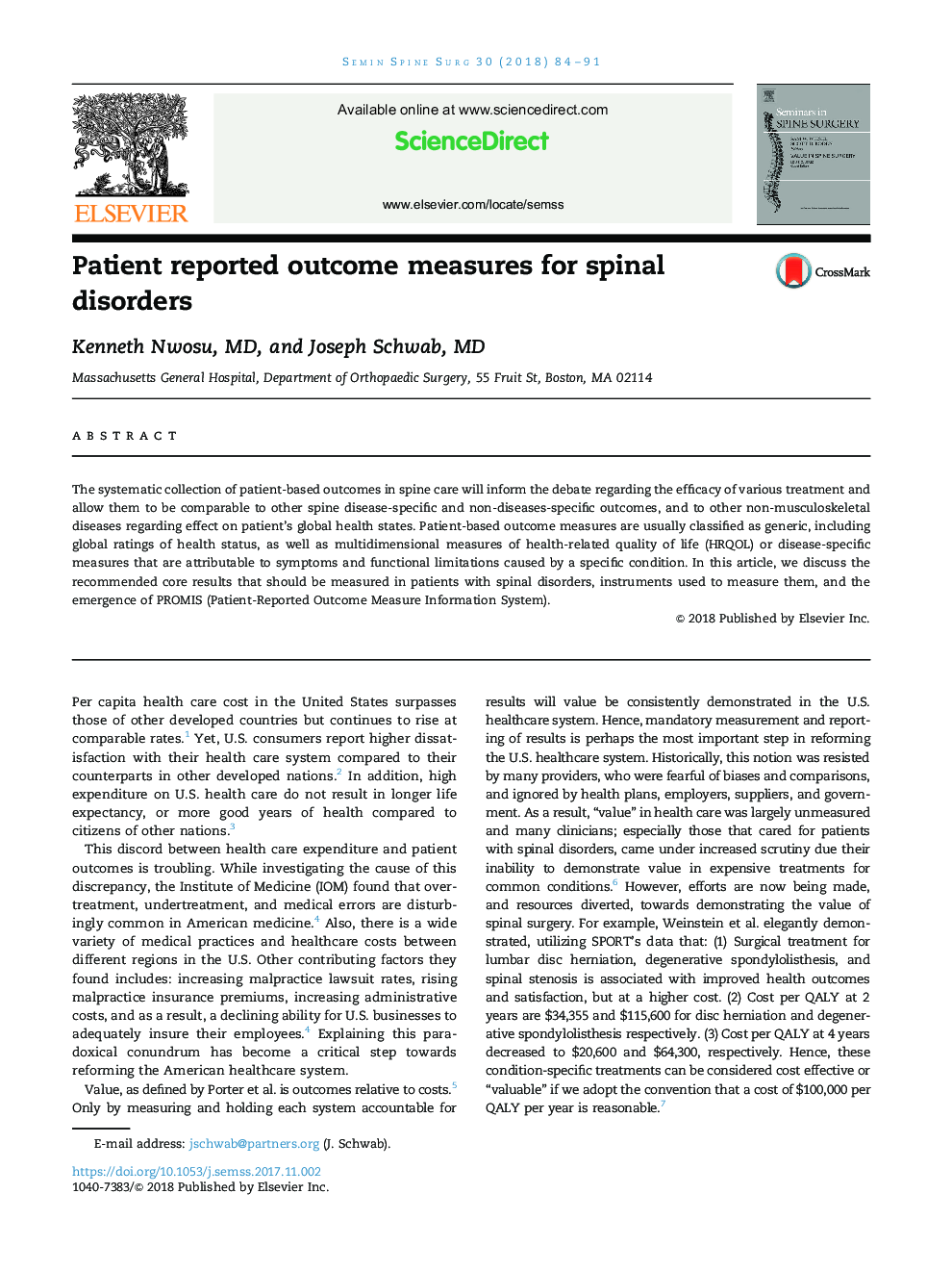| Article ID | Journal | Published Year | Pages | File Type |
|---|---|---|---|---|
| 8804096 | Seminars in Spine Surgery | 2018 | 8 Pages |
Abstract
The systematic collection of patient-based outcomes in spine care will inform the debate regarding the efficacy of various treatment and allow them to be comparable to other spine disease-specific and non-diseases-specific outcomes, and to other non-musculoskeletal diseases regarding effect on patient's global health states. Patient-based outcome measures are usually classified as generic, including global ratings of health status, as well as multidimensional measures of health-related quality of life (HRQOL) or disease-specific measures that are attributable to symptoms and functional limitations caused by a specific condition. In this article, we discuss the recommended core results that should be measured in patients with spinal disorders, instruments used to measure them, and the emergence of PROMIS (Patient-Reported Outcome Measure Information System).
Related Topics
Health Sciences
Medicine and Dentistry
Orthopedics, Sports Medicine and Rehabilitation
Authors
Kenneth MD, Joseph MD,
